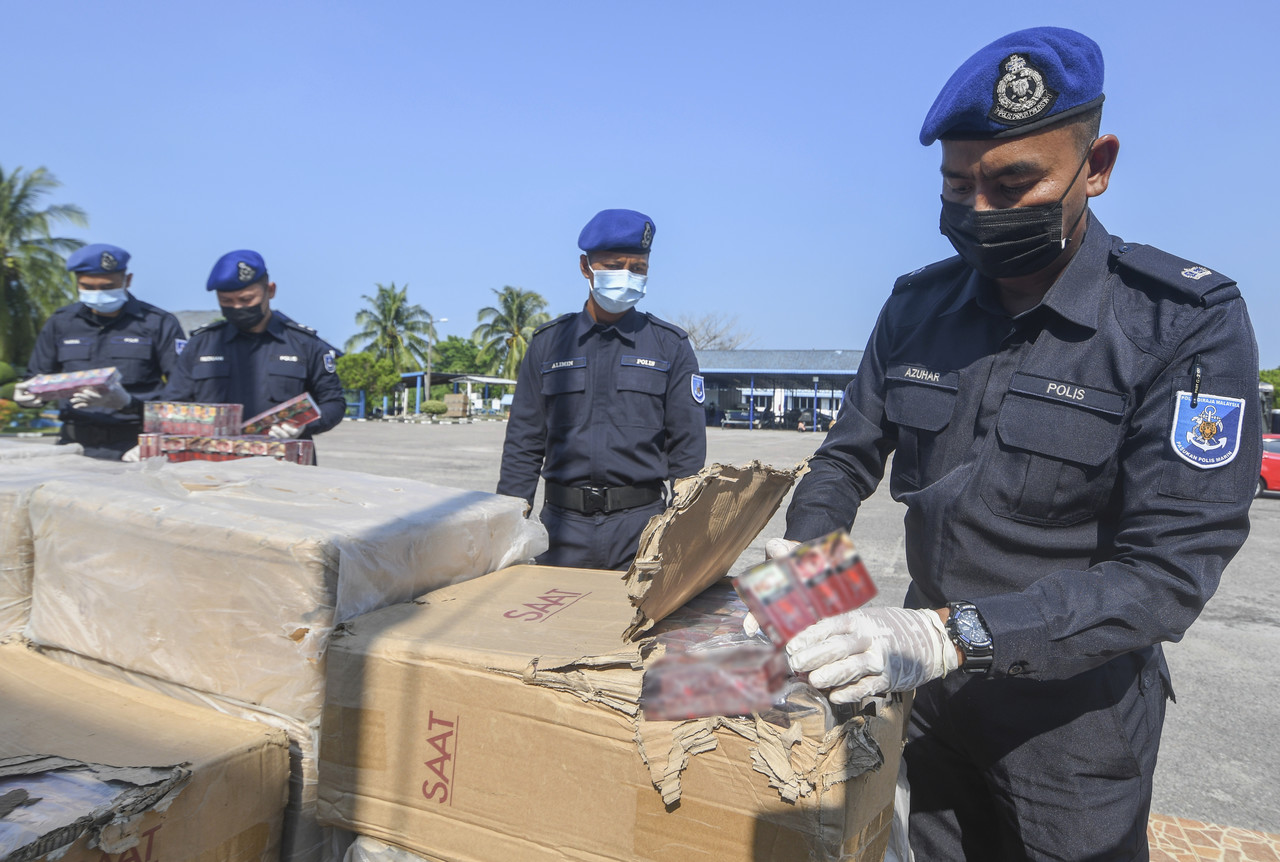MALAYSIA’S illegal cigarette trade remains a significant problem due to both high demand and lucrative profits for the syndicates.
A food for thought is that the low-income group will continue to consume illegal cigarettes to fulfil the nicotine needs due to economic pressures and the rising cost of living.
This is where a conflict zone arises – one can argue that smokers should quit smoking altogether if the prices of legal cigarettes have shot up beyond their affordability. Yet realistically, the wide availability of cheap illicit cigarettes as an alternative does not provide a conducive environment for smokers to quit.
All this despite the Government implementing various preventive measures to tackle the illegal cigarettes trade in 2021, including the restrictions on transshipment and export activities about tobacco products.
“But smuggling through ship transfers – especially in the waters off the Straits of Melaka – is brought into the country through illegal jetties, and landing spots are getting rampant,” observed the Crime Prevention and Community Safety Department’s (JPJKK) former director Datuk Ramli Din. “Syndicates are quick to switch their smuggling modus operandi.”

Having served for 35 years in the Royal Malaysian Police, he said Malaysia has a very unique terrain with extensive air, land and water routes. This makes custom enforcement difficult.
“The country’s borders are vast and easily accessible without restrictions,” revealed Ramli, who was previously the Police Commissioner for Sabah and Sarawak. “A good case point is the ‘elephant road’ (jalan gajah) found in Sabah and Sarawak. These are wide, unpaved road that can even be accessed by lorries.”
There are many jalan gajah in East Malaysia that smugglers are fond of using. This is one of the main challenges for the enforcement authorities in combating smuggling activities.
Against such backdrop, Ramli suggested that the Government invest in the latest technologies such as enforcement agencies using drones for patrolling.
When asked about his views on the Government’s plan to implement the cigarette generation ban (banning sale of cigarettes to individuals born in 2005 and beyond), he opined that the plan is only good on paper.
Still, there are many aspects that are needed to be thoroughly thought through, especially from the enforcement perspective, in order for the ban to be effective.
“Malaysia has already implemented a ban on the sale of cigarettes to teenagers under 18, but in my opinion, it is not successful because the underage can still buy cigarettes easily, especially at sundry shops manned by foreigners,” he pointed out.
“Even school students who wear school uniforms can purchase cigarettes and are free to smoke cigarettes.”
Ramli is also puzzled as to how the ban is going to be enforced. “If the onus is going to be solely on the retailers, I think it will not be successful given failure to enforce the under 18 ruling,” he noted.
Ramli further stressed the need for the Government to impose disciplinary action against civil servants who are found smoking illegal cigarettes as “a low hanging fruit” in addressing the illicit cigarette menace.
“I do not mean to support people who smoke legal cigarettes. Smoking is not good for health but supporting the illegal cigarette industry is far worse as it affects the country’s revenue and one’s health due to the unregulated contents in illicit cigarettes,” he added. – June 3, 2022










